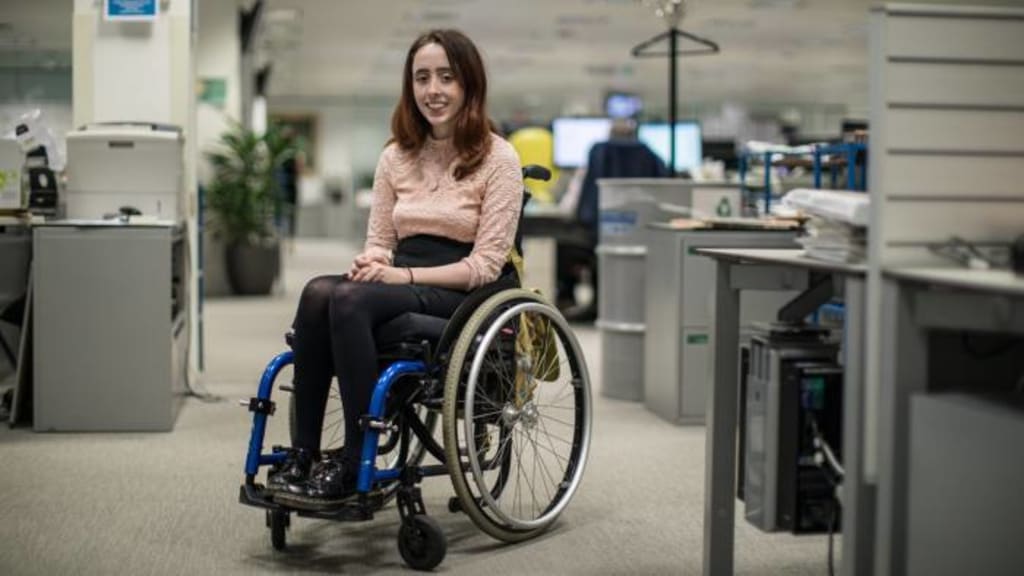How Can Disabled People Be Supported At Christmas Time?
What Measures Can Be Taken To Help Disabled People Feel Less Lonely During The Festive Season

Christmas is a time of year where people celebrate the birth of Jesus Christ. Normally people spend time with families and have large gatherings, however this year due to the Covid 19 pandemic, celebrations will have to be a bit muted to cater for social distancing measures. Large gatherings are banned to try and stop the spread of the disease. A vaccine has been created but this will take time to give to the entire population. People should not visit their GP but instead wait for their GP to call them to avoid GP waiting rooms and surgeries becoming crowded and increasing the spread of the disease.
People with a learning disability are seven times more likely to be lonely this Christmas. That's according to a recent survey by Mencap who specialise in offering support for people with learning disabilities. The survey found that 24% said they felt lonely a lot. This compares to just 3.4% of the general population who said they felt lonely ‘often or always’.
“Christmas is all about family and meeting up with friends. This ‘Christmas cheer’ can make a lot of people feel lonely at Christmas time if they don’t have anyone to spend it with. For people with a learning disability, like me, who face prejudice and stigma because they have a learning disability, it means they are excluded from lots of social things and they can feel even lonelier as a result. Fear of abuse or not having any support to be independent means that people with a learning disability might not be able to leave their homes and get out and about, and you’ve got a ‘perfect storm’. We’re now seeing high levels of loneliness facing people with a learning disability.
“I was lonely for years. I found it hard to get a job, I felt anxious travelling and I ended up being stuck at home at lot because I didn’t always have anyone to support me to go out. I was beginning to give up hope. But it all changed when Mencap supported me and helped me get a job. Now I get out of the house and I’ve made new friends. I am more confident and independent – I’m captain of my football team. In the past, I spent Christmas stuck at home but this year I will be going out with friends – going bowling, for drinks at the pub and to watch football on Boxing Day. People with a learning disability shouldn’t face loneliness at Christmas or any other time of year. I’ve broken free of loneliness. Now let’s help make sure thousands of others can one day say the same. Everyone’s Christmas is unique but no one should spend it alone.”
That's according to Vijay Patel, Campaigns Assistant at Mencap and who has a learning disability.
There should be more understanding about the needs and abilities of people with learning disabilities to find out how they can be best supported in society. There needs to be more equality in society to help enable them to take part in everyday activities along with everyone else. It is only that way that we can prevent people with learning disabilities feeling lonely and help then take part in every day society.
In the UK there is a welfare system which helps cater for disabled people and enable them to take part in every day society, however there have been many people who have been unfairly assessed and judged and this has meant that they have missed out on the support they deserve and require to take part in every day society.
A study which took part last year in to disability, well-being and loneliness found some very stark findings which highlight the state of disabled people's lives and assess their needs for the future. The key findings of the report are as follows.
Disabled people’s average ratings are lower than those for non-disabled people for happiness, worthwhile and life satisfaction measures.
Average anxiety ratings are higher for disabled people at 4.27 out of 10, compared with 2.66 out of 10 for non-disabled people.
Disabled people with a mental impairment as a main health problem have the poorest well-being ratings.
Disabled people whose impairments affect them more severely have poorer well-being ratings than disabled people whose impairments affect them less severely.
The proportion of disabled people (13.3%) who report feeling lonely “often or always” is almost four times that of non-disabled people (3.4%), with the greatest disparity for young adults, aged 16 to 24 years old.
More support needs to be available for disabled people to ensure they can fully take part in every day society as well as have company at Christmas time. Everyone should have equal opportunities to take part in every day society and not feel isolated or left out just because they are less able than others. There should be more equality in society to ensure people are supported when they need it.






Comments
There are no comments for this story
Be the first to respond and start the conversation.